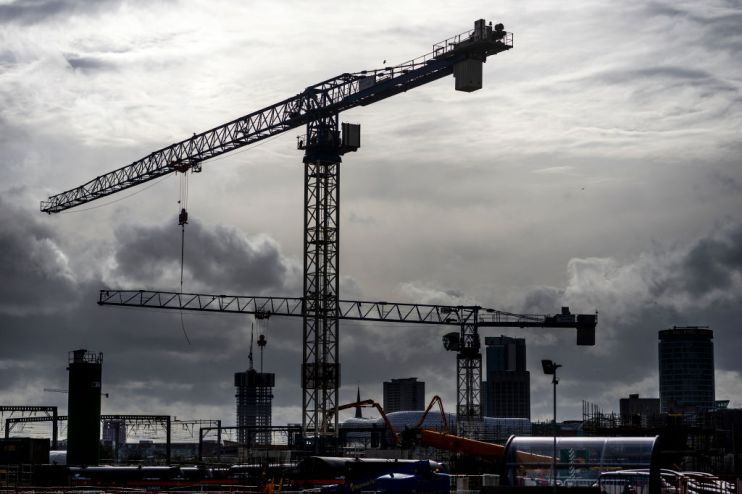UK growth set to slow as economy experiences ‘renewed signs of stress’, KPMG warns

The UK economy will “struggle to keep its head above water” for the remainder of this year as it is experiencing “renewed signs of stress,” KPMG warned today.
The Big Four accountancy firm said that while worries about a deep recession have largely gone away, the economy was not out of the woods yet.
Over the course of this year, it said that high interest rates, uncertainty and low productivity will likely act as a drag on economic growth.
“This will likely weigh on investment decisions, sterling, and UK-based assets,” the firm said in its latest report on the outlook for the UK economy.
It said that the effect of higher interest rates is feeding through to investment intentions, transaction volumes and corporate insolvencies, and the latest economic data signals a slowdown in economic activity.
Last week, S&P Global’s Purchasing Managers’ Index (PMI) for the UK economy, which assesses the health of an economy’s services and manufacturing sector, came in at 46.8 for September – far below the 50 reading that indicates flat growth. Falling from a reading of 48.6 last month, the downturn was the steepest since the financial crisis when excluding the pandemic era, increasing the chances of a recession.
KPMG added that the outlook for consumption also remains weak.
“Discretionary spending is down and the financial cushion in the form of excess savings has been used up,” the firm said.
KPMG said it expects growth to slow, forecasting 0.4 per cent for this year and 0.3 per cent in 2024.
It said there were some “bright spots”, including the pickup in consumer confidence, suggesting “cautious optimism”, though it remains well below pre-pandemic levels.
The steady rise in oil prices and a possible slowdown in China could also drag on global growth, putting further potential strain on the UK economy going forward, the firm added.
But there is still a huge amount of uncertainty hanging over the future direction of monetary and fiscal policy.
The Bank of England’s Monetary Policy Committee voted to hold interest rates at 5.25 per cent last week following a surprise dip in inflation for August, which fell from 6.8 to 6.7 per cent.
While many economists think interest rates are now likely to be at their peak, Yael Selfin, chief economist at KPMG UK, said that “uncertainty remains regarding their future path”.
“This coupled with uncertainty around future plans for fiscal policy as the UK heads into an election year, may see businesses choose to further delay investment,” she said.
Chancellor Jeremy Hunt said last week it will be “virtually impossible” to deliver tax cuts until the UK economy improves.
But reports suggesting the government is considering scrapping inheritance tax shows that new policies are already being drawn up ahead of an upcoming general election.
“As the debate is slowly shifting to the Autumn Statement, the Chancellor will be confronted with a cocktail of higher borrowing costs and myriad of spending demands,” Selfin said. “The temptation will be to address the short-term pressures. However, given the state of public finances and the challenges ahead, the UK economy will be better served by focusing on the longer-term challenges, such as tackling climate change and increasing productivity and long-term growth.”
